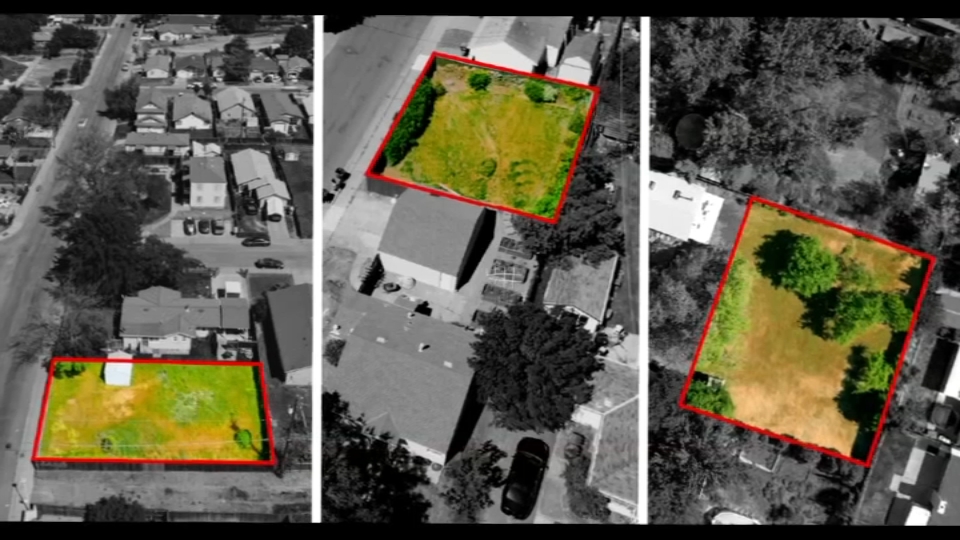A little more than three months after doctors and the state of California declared a 13-year-old girl brain dead, the mother of Jahi McMath says her daughter's movements in bed are fueling her faith that she will one day recover.
In her first interview since Jahi McMath was transferred out of Children's Hospital Oakland to an unknown care facility, her mother said Jahi moves in her bed, bends at the waist, moves her head from side to side, gets her nails painted every Friday and has an "energy level that is way up."
"She's still asleep," Jahi's mother Nailah Winkfield of Oakland said in a satellite camera interview. "I don't use the word 'brain dead' for my daughter. I'm just waiting and faithful that she will have a recovery. She is blossoming into a teenager before my eyes."
Winkfield spoke exclusively to NBC Bay Area and NBC's affiliate in Philadelphia, where she was being honored Thursday night by the Terri Schiavo Life & Hope Network at the group's 2nd Annual Award Gala. The award is for a relative who protects "a loved one against overwhelming odds." Jahi's heart has continued to beat, and Winkfield appeared more upbeat and rested than she has in months.
Winkfield first took her story public in December after Jahi was declared brain dead following tonsil, uvula and adenoid surgeries that went awry. But Winkfield and her family have shunned the cameras ever since they won a court order in January to have Jahi transferred from the hospital during a heated and publicized battle over patients' rights what constitutes the "end of life."
Winkfield told NBC Bay Area she decided to speak publicly on Thursday because she was thankful to be awarded for her struggles by a like-minded organization. Terri Schiavo's brother, Bobby Schindler, runs a nonprofit in memory of his late sister who was in a vegetative state for 15 years. His family waged a similar war against Schiavo's husband, who argued his wife had wanted to be taken off life support. Schiavo died in 2005.
"I feel really honored that I'm getting this award for saving my daughter's life," Winkfield said. "So I figured today would be a good day, because I'm in a better mood, I'm in better spirits today."
Winkfield is in better spirits because she said she witnesses her daughter moving about in her bed, describing the teen as "very responsive." Jahi is now moving her head side to side, something she hadn't done before, her mother said.
Jahi undergoes physical therapy three or four times a week, her mother said, and can bend at the waist, even if she can't sit up. Plus, her mom said that Jahi turns over in bed.
"No matter how many times you position her to the right or in the middle, she always ends up on the left side," Winfield said. "She will reposition herself over and over if she is uncomfortable."
Still, Winkfield said Jahi is unable to speak or squeeze her hand. Jahi is on a ventilator and is nourished through a feeding tube. Her mother gives her vitamins and fish oil herself "to feel useful."
Children’s Hospital doctors declined to comment on Winkfield’s interview and analyze what Jahi's movements might indicate. In court papers, Children’s Hospital Dr. Heidi Flori testified that Jahi’s brain stem, which controls all critical bodily functions, can not regulate “life sustaining functions over time” and that “aggressive medical intervention will not stop but only serve to slow post-mortem deterioration.”
In a phone interview on Thursday from the University of Washington where he is head of pediatric neurology, Dr. Sidney Gospe said he couldn't put a "whole lot of weight" into what Jahi's mother had to say about her movements without a neurological examination. "Someone with expertise would have to characterize those movements as either reflexes or something initiated by her cerebral cortex," he said. Gospe added that a ventillator has the ability to help maintain a patient's vital signs. Dr. Chris Feudtner at the Children's Hospital of Philadelphia cited a study where 13 percent of the brain dead patients he studied spontaneously moved because of spinal cord neurons, including toe jerks, extensions at arms and shoulders and flexing of the arms and feet. These movements, the researchers wrote, "may certainly delay decision making...because of difficulties in convincing the family."
Winkfield, who left her job of 12 years at Home Depot to sit by Jahi's bedside, would not disclose where she and Jahi are staying, or who is paying for Jahi's care, because she wants things to remain "peaceful."

Local
"I don't want to discuss that," she said.
Winkfield said she has a place to stay outside of the care facility, but that she is mostly at the center, where she called the staff "angels." She acknowledged it's been very challenging to leave her other three children -- two daughters, ages 19 and 5, and an 11-year-old son -- at home without her.
"I definitely miss my other children," she said. "But my family is super supportive, so even though I'm gone, my children definitely understand why I'm gone, and they're definitely in agreement with me staying here to take care of their sister."
There are many who have criticized the family for keeping a brain-dead daughter on machines.
Winkfield, however, is paying those critics no mind.
She's too focused on spending her days caring for Jahi, giving her a manicure and pedicure every Friday, like she did at home. On St. Patrick's Day, she painted her daughter's toes and nails green with black and silver tips.
Winkfield also pores over case studies on people who have come out of deep comas, and she spends long hours reading the pages of the Bible, looking for hope and wisdom.
"Literally," Winfield said. "That's the only book I read."



